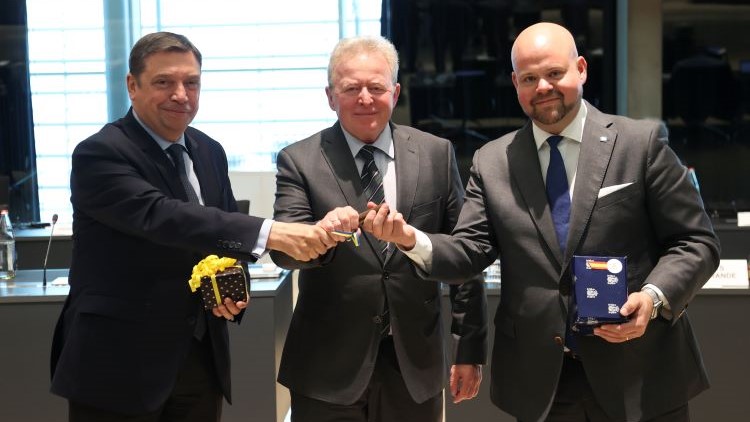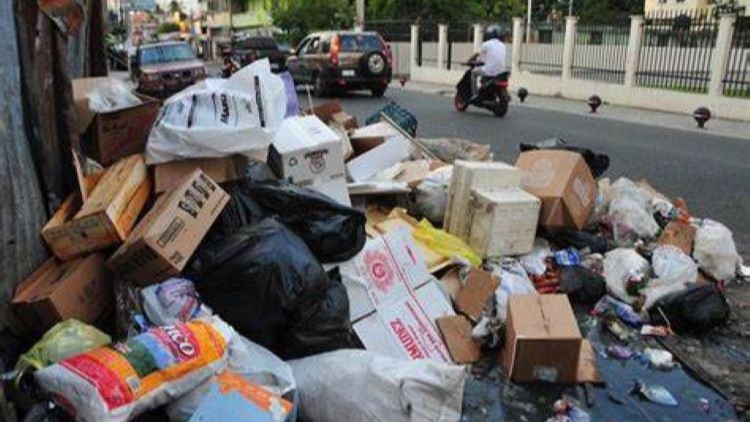The Diplomat
The European Commission has proposed this week a global aid of 330 million euros for EU farmers affected by extreme weather events in 22 Member States, including Spain, which would receive more than 81 million euros from the agricultural reserve to address the consequences of drought and support the agricultural sector.
Specifically, farmers in Belgium, Czech Republic, Denmark, Germany, Estonia, Ireland, Greece, Spain, France, Croatia, Italy, Cyprus, Latvia, Lithuania, Luxembourg, Malta, Netherlands, Austria, Portugal, Slovenia, Finland and Sweden will benefit from this exceptional aid worth 330 million euros from the CAP budget. The countries will be able to supplement this EU aid by up to 200% with national funds. All these Member States had informed the Commission of the difficulties facing their respective agricultural sectors.
Member States will vote on the measure at a forthcoming meeting of the Committee for the Common Organization of Agricultural Markets, to be held in the coming weeks, and payments of this aid must be made by 31 December 2023 at the latest.
Spain is at the head of the beneficiaries, with 81,082,911 euros, followed by Italy (more than 60.5 million), France (53.1 million), Germany (35.7 million), Greece (15.7 million) and Portugal (11.6 million). The Brussels proposal was highly valued by the Minister of Agriculture, Fisheries and Food, Luis Planas, during his participation in the last Council of Ministers of Agriculture and Fisheries under the Swedish Presidency, held until yesterday in Luxembourg. According to the Ministry of Agriculture, if this aid is approved, Spain would become the first recipient of extraordinary aid for the consequences of climatic phenomena.
Luis Planas
At the same meeting in Luxembourg, Planas assured his European counterparts that the Spanish Presidency of the EU Council will promote the establishment of multiannual fishing quotas from 2024. During his speech, the minister expressed his satisfaction with the foreseeable adoption of a system of total allowable catches (TACs) of multiannual fishing – instead of annual, as until now – for certain species and assured that it will be during the Spanish Presidency of the Council of the European Union, which will begin next Saturday and will extend throughout the second half of this year, when progress will be made in this measure.
He also recalled that it was Spain that proposed a system of multiannual fishing quotas for stocks in Community waters, with the aim of increasing the efficiency and predictability of the activity of the European fleet. The fact that the European Commission (EC) has accepted this proposal shows that “we can start this journey with vision and constructive spirit during the next six months,” he said. The Spanish proposal has had, from the beginning, the support of France and Portugal.
Planas also raised certain changes to the European Maritime Fund for Fisheries and Aquaculture (FEMPA) to develop the necessary process of modernization and decarbonization of the fleet in the coming years and recalled that during the next informal meeting of Fisheries Ministers, to be held in Vigo on 17 and 18 July, will address the decarbonization of the fisheries sector and the adoption of an ambitious framework for funding and regulatory changes that allow the promotion of the energy transition of the sector and reduce its dependence on fossil fuels.
Also in Luxembourg, Luis Planas picked up the baton of the EU Presidency yesterday from the Swedish Minister of Rural Affairs, Peter Kullgren. During the six-month period, Spain will hold two informal meetings in July and September. The first, in Vigo, will deal with the decarbonization of the fisheries sector and investments in sustainability, and the second, in Cordoba, will address new technologies as a tool for a more resilient agriculture in the face of climate change.
In addition to the Councils of Ministers scheduled in Brussels and Luxembourg, until December 31, meetings have been scheduled in different Spanish cities that will focus, among other issues, on animal health and welfare, organic production, the promotion of rural areas, hunting, agricultural insurance and plant health.







